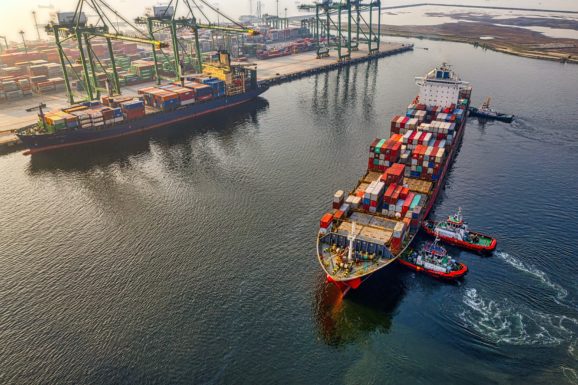Among the many lessons learned from the past year, one that deserves more attention is the fragility of the global supply chain and the importance of those working to support it. From 2020 to today we have seen the availability of goods impacted by panic buying, worker shortages, weather disruptions, and most recently cyber-attacks. These disruptions have created difficult situations for those transporting these goods, in particular maritime workers.
According to the International Chamber of Shipping, the shipping industry transports more than 80% of global trade goods, including nearly 2 billion tons of crude oil, 1 billion tons of iron ore, and 350 million tons of grain each year. However, as the pandemic struck, and shipping ports closed, maritime workers were confined to their ships. Roughly 400,000 workers were stranded on ships globally in late 2020 and an estimated 200,000 maritime crew members are still stuck on vessels beyond the expiration of their contracts. Some have been at sea for as long as 20 months, though 11 months is the globally accepted safety standard as set by the ILO Maritime Labour Convention.
These conditions are hazardous to the maritime workers’ mental and physical health.
A September 2020 survey conducted by the International Transport Workers Federation found that 60 percent of maritime workers said it was “more likely than not” that they or their crewmates would be “involved in an accident that could harm human life, property or the marine environment due to fatigue while aboard.”
Many shipping lines are increasing their efforts to provide their employees with as much comfort as possible while the crew-changes crisis continues. Increasing internet connection so they can connect to their families, paying for groceries while docked, and providing bonuses are just some of the steps they’ve taken.
Earlier this month, the UN Global Compact in partnership with Unilever and other retail brands, launched the Human Rights Due Diligence Tool for cargo owners and charterers. This voluntary toolkit calls on companies that put cargo on shipping containers to address the current crisis and provides guidance to ensure that seafarers have their rights protected. Brands that work with cargo ships are also being encouraged to request more information on their supply chains including which ships are being used, to increase awareness of human rights situations.
As the pandemic continues in many parts of the world, and the impact on supply chains is felt for months and years to come, businesses must support fair treatment of the people who make the supply chains possible.
